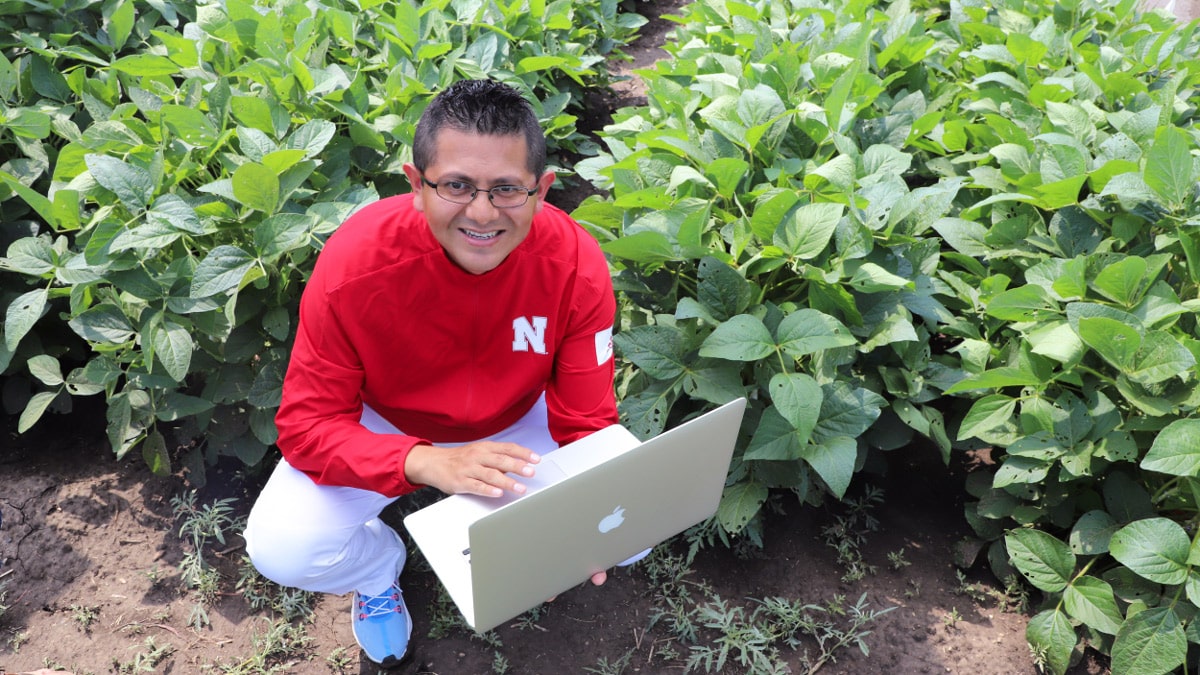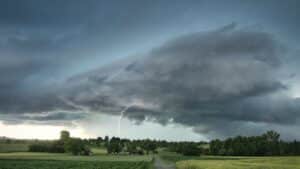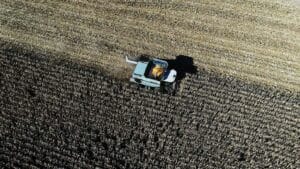Diego Jarquin, University of Nebraska,Lincoln Department of Agronomy and Horticulture research assistant professor, recently sat down with Seed World to talk about his career. He was awarded the 2020 National Association of Plant Breeders Early Career Scientist Award and spoke last week at the NAPB’s virtual meeting.
This award recognizes a scientist in early stages of their plant breeding career who exhibits the ability to establish strong research foundations, to interact with multi-disciplinary teams and to participate in relevant professional societies.
Jarquin received a Ph.D. in statistics from the University of Postgraduate Education in Mexico in 2012. He had postdoctoral training at the University of Alabama-Birmingham and at the University of Nebraska,Lincoln. He has been at Nebraska since 2017.
In his program, Jarquin merges statistical methodology, quantitative genetics, computer algorithm development, data science and collaborative work with plant sciences. He seeks to advance prediction models for forecasting the plant performance while accounting for several sources of information and by taking genotype-by-environment interaction (G×E) into consideration.
Tell us about your background and how it led to you entering this field of study.
I am a statistician by training: I have bachelor’s, master’s and PhD degrees in statistics. Statistics is a field that attempts to analyze collected data with the objective of making inferences on a whole population using data from a sample of the population.
As we can imagine, statistics can be applied on any field that generates data; pretty much all fields from psychology, forensic sciences, physics and agronomy.
During my PhD, I volunteered to translate SAS scripts to R for CIMMYT’s SAS statistical analysis system. It is powerful software for conducting statistical analysis. R is a freely available software for statistical computing and graphics with a wide variety of techniques, many of these were made available for users making easier their implementation.
At CIMMYT I realized that many of the things I learned in class could be applied to realistic problems with a huge impact on the [important task] of feeding the world.
For this reason, I considered switching my research topic from developing methods for assessing damaged areas due to petroleum spills to developing Bayesian methods for assessing or estimating the genotype-by-environment interaction of cultivars tested in multiple environments for releasing stable cultivars.
Later, I realized that similar methods can be used for performing predictions of crop performance of genotypes for different environments with applications in genomic selection.
Why do you have an interest in the field of data science?
I think I started working in the field of the data science even before I realized [it was my passion]. In the kind of studies that we perform, every day there are new layers of information that were not there before.
When I had a chance to work with more layers of information, that was when I realized that in order to make sense of all the different available omics of information, something different needed to be done, like developing new models and methods able to distinguish the different data types during analyses such that we can get the most of the information of the data.
Nowadays, we have modern automated systems that collect data of different types such as genomic, phenotypic, high throughput phenotyping platforms equipped with hyper spectral cameras, weather, soil and satellite.
Your nomination letter states: “He has worked with plant breeders of different crops in the USA,Mexico, Japan, Australia, and from many other countries.” What are the biggest lessons you’ve learned from these people?
Wow, this is a great question. I think the biggest lesson I learned is that no matter the place on the earth, all the researchers with whom I had the privilege of working with are interested in developing products, methods and methodologies to help humanity fight hunger. Their passion touched me and every single day I’m motivated to do my best to help.
What is your advice to others entering the field?
Don’t be shy; if you have ideas but you think they are not good, please share these with others. Thinking outside the box is very beneficial to bring air fresh to the field. I am sure many of the great discoveries we have now started with so-called silly ideas, so please don’t be shy. This also will help you to find your niche, and you will be the expert in whatever you propose.













